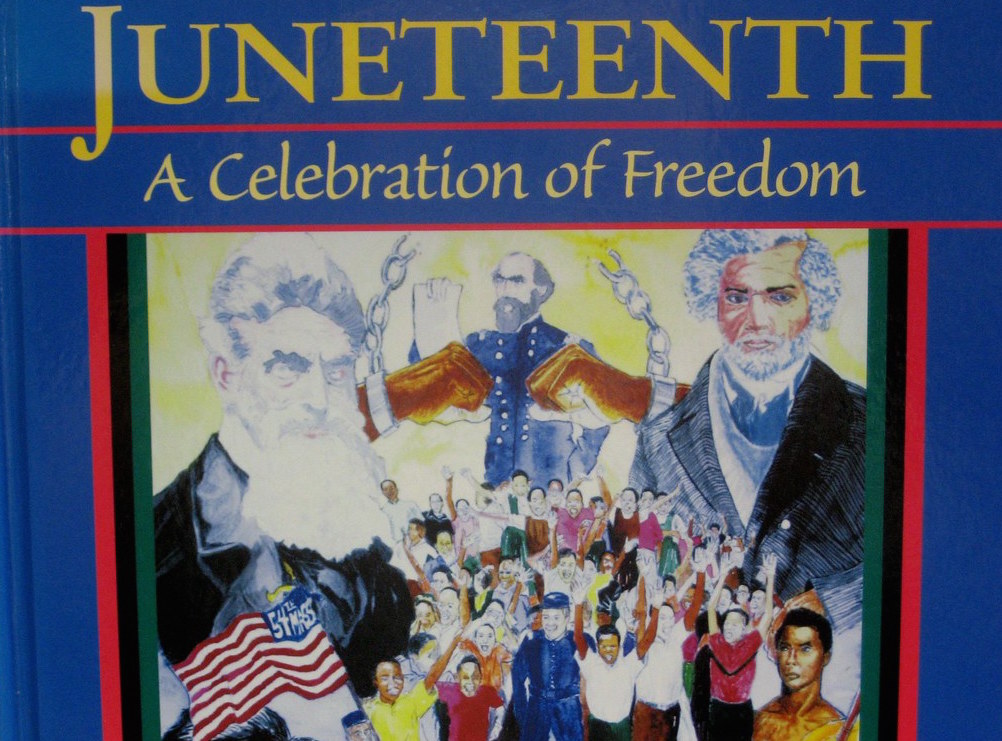Juneteenth is a celebration of freedom. The name comes from a combination of the two words in the date, June nineteenth. On that day in 1865, 250,000 slaves in Texas were freed by a Union Army general who had arrived with troops in Galveston the day before. The Civil War had ended more than a month earlier, but word of the war’s end took time to reach parts of Texas. By the end of 1865, the 13th Amendment had been ratified, formally outlawing slavery across the United States.
It was an incredible victory, but the trajectory of systemic racism in the United States did not end there, as we know all too well. Indeed, the real-world impacts of slavery on today’s African-American population were front and centre in Washington, D.C., this week, as historic hearings and public gatherings convened to discuss, debate and organize around reparations and poverty, and to offer a vision for a more just and equitable nation.
On Wednesday, Juneteenth, the House Judiciary Committee held a hearing on H.R. 40, the Commission to Study and Develop Reparation Proposals for African-Americans Act. It was introduced by Democratic Rep. Sheila Jackson Lee of Houston this year, after former Congressmember John Conyers had championed the bill for decades without success. As the name implies, all the bill seeks to do is establish a study to explore the issue of reparations. But opposition to it is fierce.
Among those testifying in support of H.R. 40 were Sen. Cory Booker, who is sponsoring the companion bill in the Senate; actor and activist Danny Glover; economist Julianne Malveaux; Katrina Browne, who traces her roots to a wealthy Rhode Island slave trader family; and author Ta-Nehisi Coates. Coates’ sweeping 2014 article in The Atlantic, “The Case for Reparations,” reignited the discussion around how we as a society must make amends for the horror of slavery.
On Tuesday, a young African-American reporter, Eva McKend, asked Senate Majority Leader Mitch McConnell whether the government should issue a public apology for slavery. “I don’t think reparations for something that happened 150 years ago, for whom none of us currently living are responsible, is a good idea,” the Kentucky Republican replied.
Ta-Nehisi Coates opened his testimony by saying: “McConnell offered a familiar reply. … But we are American citizens, and thus bound to a collective enterprise that extends beyond our individual and personal reach.” Coates went on: “We recognize our lineage as a generational trust, as inheritance, and the real dilemma posed by reparations is just that: a dilemma of inheritance. It is impossible to imagine America without the inheritance of slavery.”
Also on Wednesday, Juneteenth, another rare hearing took place. The Poor People’s Campaign: A National Call for Moral Revival presented a Poor People’s Moral Budget to the House Budget Committee. The budget rejects austerity and calls for massive military spending cuts, fair taxes on the wealthy, corporations and Wall Street, and details billions more in savings from ending mass incarceration, tackling climate change and pursuing other progressive goals.
The budget hearing was part of a three-day “Moral Action Congress” convened by the Poor People’s Campaign, co-chaired by the Rev. William Barber II and the Rev. Liz Theoharis. It’s a renewal of the Poor People’s Campaign launched by Dr. Martin Luther King Jr. in the last year of his life.
On Monday, they hosted a Democratic presidential candidates forum, with nine of the Democratic hopefuls attending. Opening the six-hour session, Rev. Barber noted that poverty was never directly addressed during the 2016 presidential debates: “43.5 per cent of this nation — not 30, not 23 — but almost half of this nation” live in poverty, he explained. “Any nation that ignores half of its people is in a moral and economic crisis that is constitutionally inconsistent, economically insane and morally indefensible.”
Former vice-president Joe Biden was the first to speak, to his credit. But to the shock of many, just the next night he attended a high-end fundraiser for his campaign in New York City, where he harked back to his early years in the Senate, recalling the “civility” of bygone days working with two segregationist senators, Herman Talmadge and James Eastland. “I was in a caucus with James O. Eastland,” Biden recalled, according to a pool report. “He never called me ‘boy’; he always called me ‘son.'” Of course, for Eastland, a Mississippi Democratic senator from 1943-78, the word “boy” — and much worse — was reserved for African Americans, who Eastland referred to as an “inferior race.” The backlash against Biden’s remarks has been intense.
We can only imagine the joy felt by those newly freed men, women and children in Galveston on that original Juneteenth, July 19, 1865. But this week, in the halls of Congress and around Washington, D.C., echoes of their celebrations are manifest as people organize for long-overdue racial and economic justice.
Amy Goodman is the host of Democracy Now!, a daily international TV/radio news hour airing on more than 1,300 stations. She is the co-author, with Denis Moynihan, of The Silenced Majority, a New York Times bestseller. This column originally appeared on Truthdig.
Photo: The COM Library/Flickr



